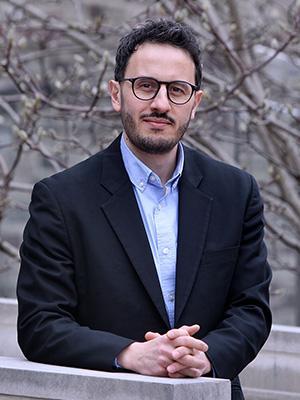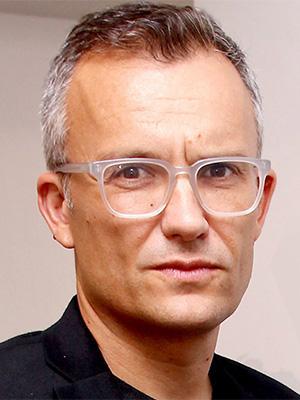Princeton SPIA Scholars Honored with Prestigious APS Awards


The American Physical Society has recognized two scholars at the Princeton School of Public and International Affairs (Princeton SPIA) for their contributions to the field of physics. Alex Glaser, an associate professor at Princeton SPIA and the Department of Mechanical and Aerospace Engineering and Co-Director of the Program on Science and Global Security (SGS), has won the 2025 Leo Szilard Lectureship Award. Sébastien Philippe, a research scholar with SGS, received the 2025 Joseph A. Burton Forum Award.
Both Alex’s and Sébastien’s achievements highlight the critical role that physicists play in addressing some of the most pressing issues facing society today. Their dedication to research and public engagement exemplifies the mission of Princeton SPIA. — Amaney Jamal, dean of Princeton School of Public and International Affairs
The Leo Szilard Lectureship Award honors physicists who have made significant contributions to the use of physics for the benefit of society. In particular, the Society cited Glaser’s contributions to advance nuclear arms control, nonproliferation, and disarmament verification, as well as his mentorship of many young researchers as co-director of SGS.
“I am deeply humbled by this recognition. I consider myself extremely fortunate to have the opportunity to work with such an amazing team of students and researchers,” Glaser said. “Princeton is in a truly unique position, bringing together technical and policy experts, and encouraging transdisciplinary work, and I believe this is one of the reasons why we have been relatively successful over the years.”
Frank von Hippel, who co-founded SGS in 1974 and is a professor emeritus at Princeton SPIA, said, “In addition to his creative research and teaching, Alex has become an important mentor for scientists interested in nuclear arms control. Some of his postdoctoral students have gone on to become leading researchers in the field. I am glad that Alex succeeded me on the SPIA faculty and as co-director of SGS."
Zia Mian, senior research scholar and Co-Director of SGS, noted that Glaser is highly regarded by his scientific peers and the international nuclear policy and diplomatic community for his work. Glaser was one of a handful of scientists who presented at the negotiations of the United Nations Treaty on the Prohibition of Nuclear Weapons.
“It is a remarkable record of work in the service of humanity,” Mian said.
The Joseph A. Burton Forum Award recognizes outstanding contributions to the public understanding or resolution of issues at the interface of physics and society. In awarding it to Philippe, the Society praised him for accurate radiation dosage estimations from U.S. and French nuclear tests and for effectively communicating those findings to the public. It also noted his work in assessing potential radiation from nuclear attacks on U.S. intercontinental ballistic missile silos, which showed the value in addressing scientific findings and consulting the people affected.
“This recognition underscores the critical importance of advancing our understanding of nuclear weapons effects, to bring about justice for past nuclear harm, but also to understand the consequences of current nuclear weapon policies for people and planet,” Philippe said. “It also validates a way of working that bridges science, policy and journalism. This work was collaborative in nature. I am particularly thankful to all my colleagues, scientists, journalists, scholars, impacted local communities and nuclear justice advocates who have contributed to these efforts.”
Philippe’s work on estimating radiation doses from nuclear tests has been featured in prominent newspapers around the world and cited by the attorneys general of 14 U.S. states in a letter to Congress advocating for expanded coverage of the Radiation Exposure Compensation Act.
“Sébastien has advanced the art of calculating the consequences of radioactive releases. He also has developed a new way to get government and public attention to technical work with important policy implications. Most of us academics feel we have done our jobs when we publish our findings in a peer-reviewed journal read by other academics. Philippe has shown in both France and the United States that, if you collaborate with journalists to make your results accessible to the wider public, the government policy-making process is much more likely to pay attention,” said von Hippel.
